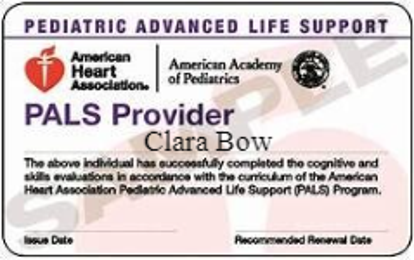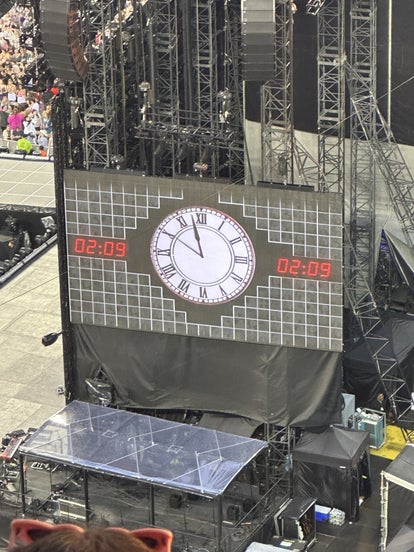This course will provide all of the instruction necessary to learn how to "check the pulse and come back swearing [when] it's the same". You will learn Infant, Child and Adult CPR and Foreign Body Airway Obstruction. Completion of the course requires proficiency in demonstrating all skills and and completing the 25 question written exam. Virginia EMS Providers will also receive 4 hours Category of 1 CEU credit in the following areas: 1 hour Airway, 0.5 hour Pediatric Airway, 1 hour Cardiology, 0.5 hour Pediatric Cardiology, 0.5 hour Medical, 0.5 hour Pediatric Medical.
This is a recertification course for EMS Providers already certified in AHA ACLS. You will start by completing the AHA Pre-course Class using this free link:
ACLS: https://elearning.heart.org/course/424
Once completed, print your Certificate of Completion and bring it with you to the Skills Evaluation that you will complete with me. At the Skills Evaluation you will take the AHA Written Exam (50 questions), Adult CPR Skills Verification and Adult Megacode Evaluation.
Upon successful completion, you will receive an American Heart Association ACLS Provider eCard to your email address. If you are a Virginia certified EMS Provider you will also receive 5 Category 1 CEUs in the following areas: 1 hour Airway, 2.5 hours Cardiology, 0.5 hours Trauma, 1 hour Medical.
This is a recertification course for EMS Providers already certified in AHA PALS. You will start by completing the AHA Pre-course Class using this free link:
https://elearning.heart.org/course/426
Once completed, print your Certificate of Completion and bring it with you to the Skills Evaluation that you will complete with me. At the Skills Evaluation you will take the AHA Written Exam (50 questions), Infant and Child CPR Skills Verification and 3 Pediatric Skills Scenarios - 1 Airway & Breathing, 1 Shock, 1 Cardiac Emergencies.
Upon successful completion, you will receive an American Heart Association PALS Provider eCard to your email address. If you are a Virginia certified EMS Provider you will also receive 6 Category 1 CEUs in the following areas: 1 hour Airway, 2.5 hours Cardiology, 2.5 hours Medical.
You don't need to be afraid of RSI, but you do need to have a deep respect for the responsibility of performing this skill. This is a class for experienced Paramedics who work in a system that is approved for RSI Airway Management. We will start by covering various techniques and tools for a successful intubation. Then we will move into the pharmacology of sedation and paralysis to achieve a successful induction. Most importantly, we will discuss the critical thinking required to decide when to choose RSI and when not to. This will include working through several scenarios in order to experience as many situations as possible.
Participants will be given the information and hands on practice they need to perform this skill; however, completion of this class does not provide the authority to practice RSI in the field without the approval of your agency's OMD. I am happy to work with any OMD to incorporate specific agency requirements in order to obtain OMD approval for sign off.
This class can be tailored to an individual, a small group or an agency. Please contact the chairman@thetrainedparamedicsdepartment.com to discuss your needs and make arrangements.
Nothing describes the symptoms and presentation of a person experiencing a Stroke better than "Glitch." In this class we will cover the wide variety of stroke symptoms and how EMS providers can recognize patient's experiencing a stroke quickly. We will cover the different assessment methods used to determine a Large Vessel Occlusion (LVO) Stroke and why it matters for this to be determined in the field. Finally, we will discuss transport decisions and where to take patients to receive the right type of care for the best possible outcome.
Even Taylor knows "All Too Well" that Chest Trauma is a serious injury when she sings, "Bandaids don't fix bullet holes". In this class you will learn all of the techniques for treating the patient with Chest Trauma - from Occlusive Dressings to Chest Decompression vs. Finger Thoracotomy. Of course, we'll also discuss some of the different injury patterns you may see as well. Be prepared for plenty of hands on skills in this class so that you are prepared to intervene quickly in these life-threatening emergencies.




